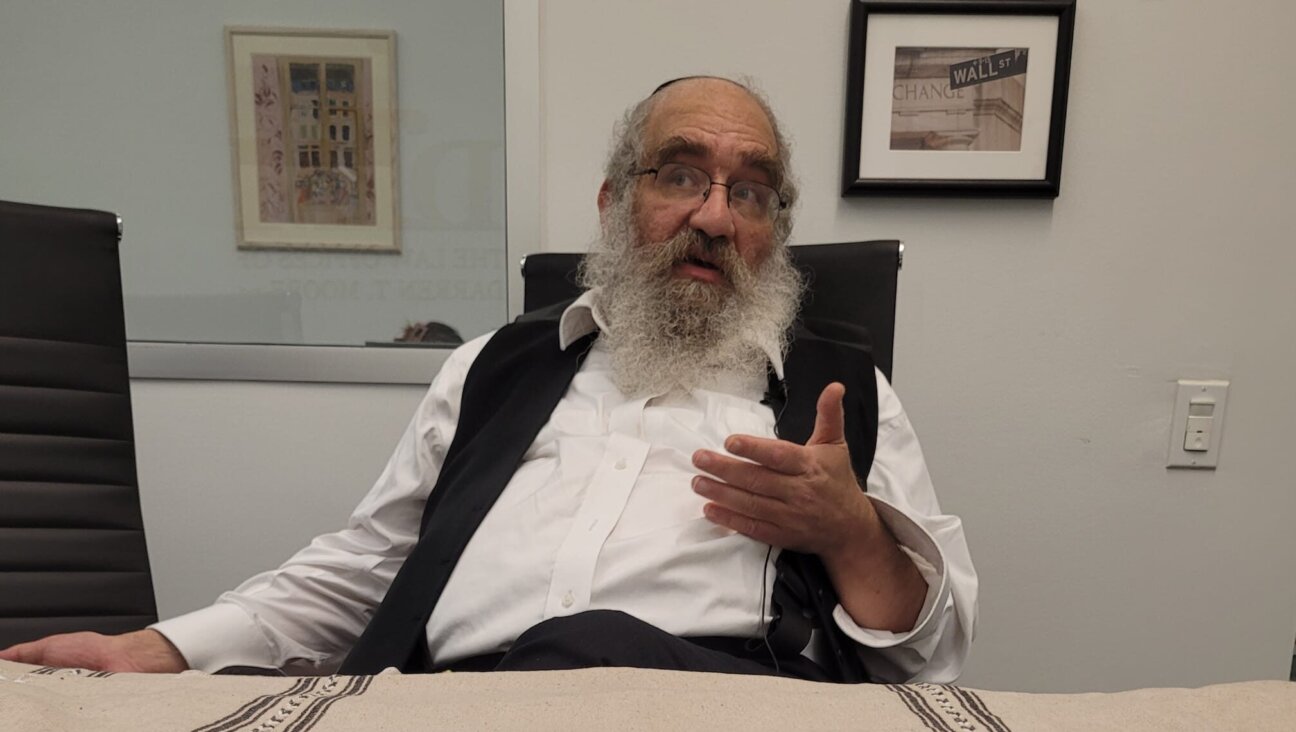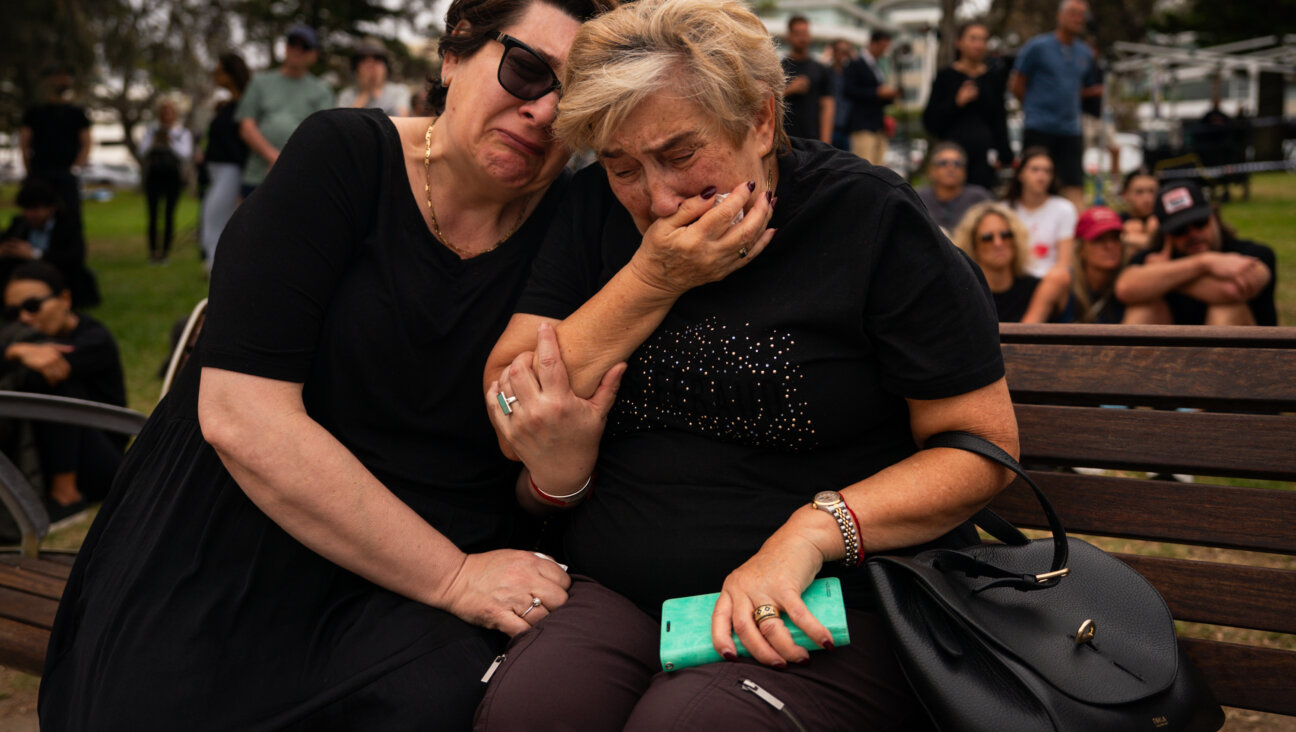Could Violence Spell Trouble for Benjamin Netanyahu?

Graphic by Angelie Zaslavsky
The sound of a fist banging on a table came through sharp and clear as Prime Minister Benjamin Netanyahu, his anger captured on a leaked audio tape, berated his own party members for not having his back in confronting a Palestinian wave of attacks.
“I expect support from each and every one of you and not these games … Be leaders. Leaders do the right thing, don’t play games,” Netanyahu said at the closed meeting of his Likud faction last week, in the recording broadcast on Army Radio.
He was referring to public remarks and visits several Likud ministers paid to a protest tent that settlers, demanding stronger security measures, erected outside Netanyahu’s official residence in Jerusalem after a deadly Palestinian assault.
It was only one signal of possible political trouble ahead for the four-term leader trying to stem an eruption of almost daily Palestinian knife and gun attacks, which have killed eight Israelis in the past three weeks.
Forty-one Palestinians, including assailants and protesters at anti-Israeli demonstrations in the occupied West Bank and Gaza, have been killed by Israeli security forces in response. An Eritrean migrant mistaken for an attacker was also killed.
At least three recent polls have shown an overwhelming majority of the public is dissatisfied with Netanyahu’s handling of the situation.
It is a jolting reversal for Netanyahu, who many supporters have long hailed as “Mr Security” and who enjoyed wide public backing during last year’s Gaza conflict, when he ordered an assault on the Hamas-controlled enclave to halt rockets.
DETERMINATION
The death toll among Israeli civilians in this wave of attacks is already higher than it was from rockets during that war, when Netanyahu demonstrated his determination to protect Israelis by ordering the offensive that killed 2,100 Palestinians, many of them civilians, and 67 Israeli soldiers.
If last year Netanyahu was able to show off Israel’s ability to shoot down incoming rockets with a high-tech anti-missile system, today he has found no such success halting knife and gun attacks, for which he has said there is “no quick fix.”
A right-wing Israeli group, demanding a crackdown to halt the wave of violence, has posted a widely viewed clip of Palestinian attacks on the Internet. It includes old footage of Netanyahyu telling an Israeli television show: “How do I want my term to be remembered? As a guardian of Israel’s security.”
In the past year, Netanyahu’s image at home has also been dented by his inability to persuade the United States and other allies to rebuff a nuclear deal with Iran.
Washington drew Israeli anger last week when a State Department spokesman suggested that excessive force was being used to thwart Palestinian attacks. President Barack Obama seemed to take a swipe at Netanyahu, who has been vocal in accusing Palestinian President Mahmoud Abbas of inciting violence, by saying on Friday that both leaders should “tamp down rhetoric” that may fuel bloodshed.
While Netayahu’s coalition government’s majority of just a single seat in parliament seems safe for now – Israeli parties traditionally do not walk out during security emergencies – cracks are already visible.
“As of now it is not in the interest of anyone in the coalition to break up the government,” Amnon Abramovich, a political analyst for Israel’s Channel Two television, told Reuters. “But this can definitely change.”
A Channel Two poll on Saturday found 71 percent of the Jewish public is dissatisfied with Netanyahu’s handling of the security situation.
Only 17 percent of those polled considered Netanyahu the best person to resolve the crisis, placing him second to former Foreign Minister Avigdor Lieberman, an ultranationalist picked by 29 percent. Lieberman has called for tougher action such as the death penalty for Palestinians who kill Israelis.
Within the cabinet, Education Minister Naftali Bennett has gone public with misgivings about Netanyahu’s stated willingness to meet Abbas to try to calm tensions. Bennett, whose party controls eight of parliament’s 120 seats and can potentially bring down the coalition, called Abbas “a terrorist with whom you don’t speak.”
“In the short run there is no imminent threat on Netanyahu’s government stability because during times of terror usually politicians actually back up the government. Nevertheless, in the long run, Netanyahu’s position as ‘Israel’s Mr. Security’ might be affected,” Amit Segal, a Channel Two political correspondent, told Reuters.
“People say: ‘If terror attacks happen on a daily basis, on an hourly basis and if he can’t handle the situation against the 16 year old terrorist in Jerusalem or the 18 year old terrorist in Beersheba, why would we elect him again?’ and that’s the main threat on Netanyahu’s position.”—Reuters














